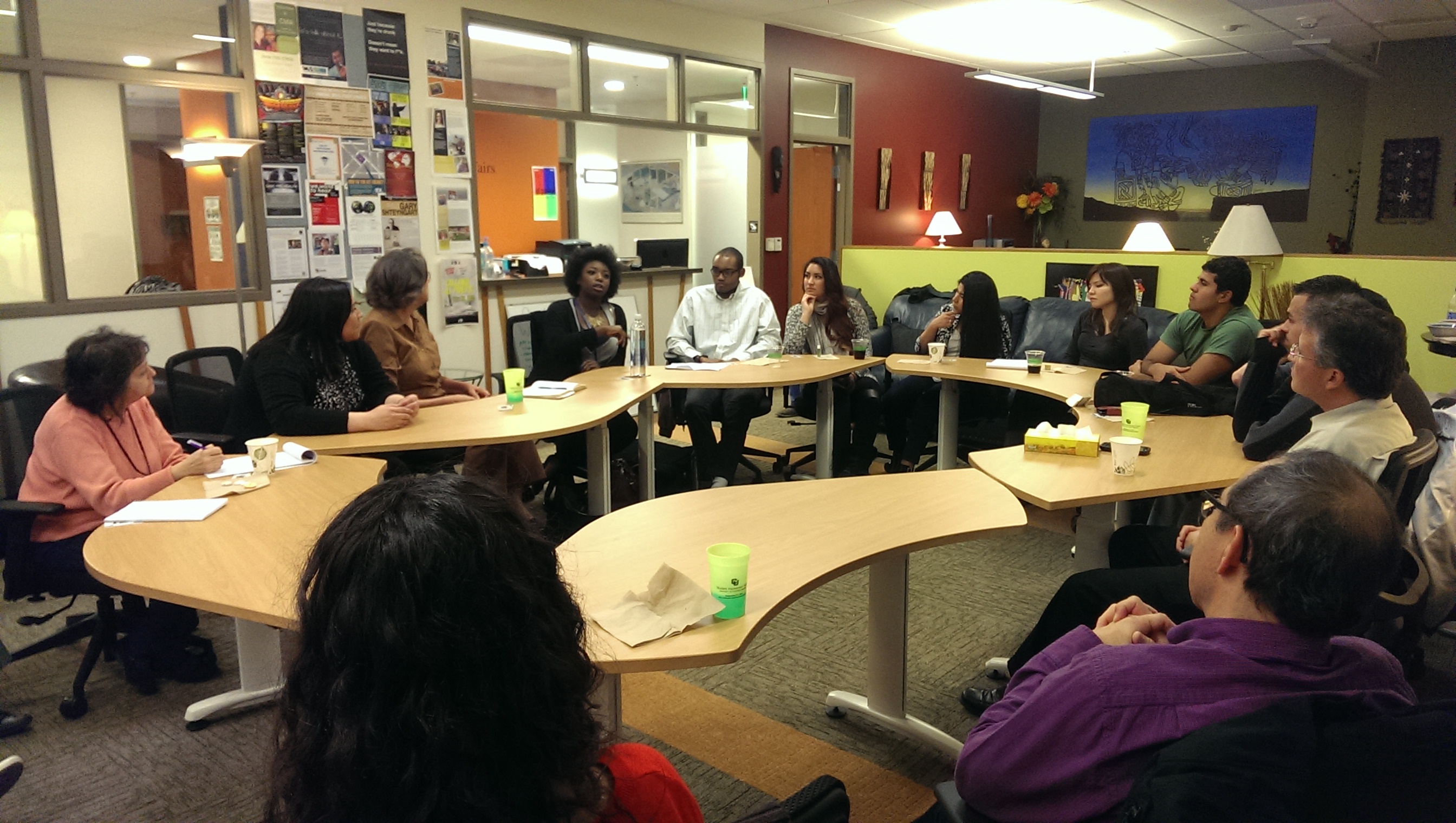CU administrators and students of multicultural backgrounds began discussing social justice at length this school year following a late-August alert from university police alleging a hate crime took place near campus.
Twenty people gathered Wednesday, Feb. 19 in the Center for Community to address campus response to bias-motivated incidents. The CU Police Department told students and faculty the weekend before the fall semester that an assault near the Broadway and Euclid Avenue underpass involved derogatory remarks about an Asian man, but police reports show that was never an element of the crime.
Witness statements and police investigation in the report said the assault involved three men, one of which was highly intoxicated, brawling for a reason that police never fully identified. In light of the initial email identifying the event as racially-motivated, sent three hours after the assault, administrators invited anyone who felt impacted by the event to meet in December and then again on Wednesday.
Vice Chancellor for Student Affairs Deb Coffin, who led the discussion on Wednesday, said that regardless of whether the August incident transpired as it appeared in the CUPD notification, the people present at the two meetings would discuss what they said is a widespread negative classroom climate at CU for minority students.
“One event in its absence or presence isn’t going to change the fact that these students are experiencing microaggressions on campus,” Coffin said.

The group spoke for almost two hours about improving everyday interactions for the 19 percent of CU Boulder students who are black, Asian, Asian American, Hispanic, Native American, Pacific Islander or identify with some other minority group.
Quengail Ameyaw, a senior ethnic studies major, said the biggest problems exist inside classrooms. Professors, more often than students, tokenize minority students and make other uncomfortable remarks, she said.
“They don’t feel like they have an option but to just sit there in that classroom and be miserable,” Ameyaw said.
Kevin Patterson, a senior double-majoring in ethnic studies and political science, said that to prevent social injustice on campus, discussions like the one on Wednesday need to include professors and other administrators.
“I think it would be good to get them to the table,” Patterson said.”My concern is that we’re seeing the same administrators over and over again and the folks that are making these decisions aren’t here tonight.”
Dean of Students Christina Gonzales said it would be possible to expand the conversations to people whose decisions could make a difference if they heard firsthand the student experience. Specifically, Gonzales said she would seek the ear of Provost Russell Moore and “key” deans and administrators, who directly oversee CU professors.
“If there’s some areas where it seems stronger we could see if those deans are available and have just a comfortable dialogue about it where students can share their experiences,” Gonzales said.
Gonzalez said stories student have told her of negative of classroom climate in the business school, specifically, have floored her.
Ameyaw said that expanding the discussion to include deans and additional administrators would only be successful if students were empowered to speak up when they’re targeted.
“We as student leaders know that students have a lot of power on this campus,” Quen siad. “But other students don’t know that.”
Contact CU Independent Breaking News Editor Alison Noon at alison.noon@colorado.edu.
 CU Independent University of Colorado Daily Student News
CU Independent University of Colorado Daily Student News

